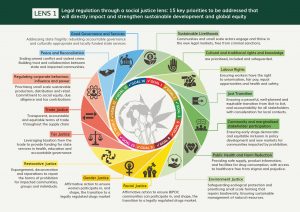The ‘war on drugs’ has failed
It has fuelled poverty and inequality throughout the world.
Imagine being a small, subsistence farmer growing coca or opium poppy as the only source of your family’s income. Imagine then watching as your crops and therefore your family’s security, are destroyed in minutes, by a government crop eradication programme. The loss of income from eradication pushes families further into poverty, making it harder for them to access healthcare or buy food, creating a vicious cycle in which they are increasingly dependent on cultivating drug-linked crops to counter the poverty they are pushed into by eradication.
The ‘war on drugs’ is often frighteningly literal. It has bred an arms race that has resulted in hundreds of thousands – if not millions – of unnecessary deaths, as cartels struggle for territory and markets in increasingly volatile places.
Strict drug laws have further unintended consequences. Some opioid medicines come from the same family as heroin. This means that governments can make morphine unavailable for those in severe pain.
It is also a staggering waste of money. The cost of enforcing the war on drugs is at least $100 billion a year. Almost half the size of the global aid budget ($204 billion). If redirected, that money could help provide healthcare, education and clean water to people across the world. This figure is for enforcement alone. If drugs were regulated, controlled and taxed the money available for public good could be mind-blowing.
The solution: legal regulation for people and planet

Click image to read: Legal Regulation of Drugs through a Social Justice Lens
Legally regulating drugs will take power away from criminals and drug cartels and allow governments to control the trade. They can regulate to determine who has access to drugs and where and in what quantities they can be sold. They can also choose to tax them and raise funds for harm reduction and other public services.
Legally regulating drugs is the responsible reaction to years of failed prohibition and it is happening – now!
From US States to Uruguay, Switzerland to South Africa, countries and jurisdictions on every continent are moving to legally regulate cannabis. More than half a billion people will soon be living in jurisdictions where cannabis is legal.
Meanwhile conversations about legally regulating other drugs including coca leaf and psychedelics are being debated from Bolivia to Colorado.
This opens up a once in a lifetime opportunity to shape an unprecedented legal framework that reconfigures one of the world’s major illegal trades – to make it work for social justice rather than against it. However if we fail to engage we risk leaving the design of regulation to big corporations to shape and benefit from drug reforms, with no concern for public or planetary health. That’s why we campaign for drug polices that support people and planet.
Read our “Why Legal Regulation?” FAQs page for more information.
Explore our reports on a range of issues relating to drug policy reform
PUBLICATIONS

